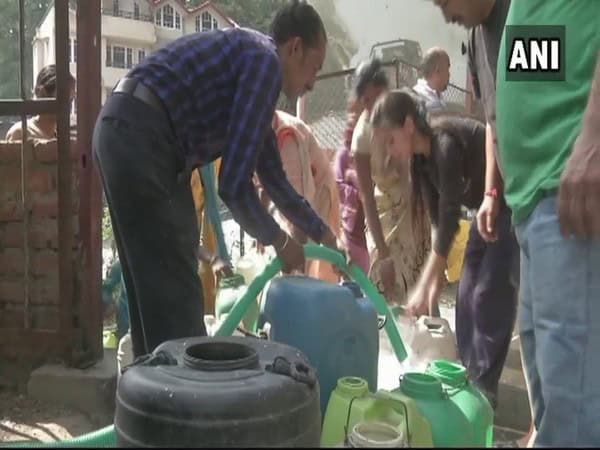Shimla: Far away from the dreadful water crisis in the South African capital of Cape Town that somehow with the help of a strict water-saving regime managed to push back the ‘Day Zero’, has now found a counterpart in India’s Shimla.
While Cape Town is eerily close to running out of water in the next three years, closer home, the picturesque hill station of Shimla, one of the most tourist-thronged locations in the country, now finds itself in severe water crisis for the ninth day on Wednesday.
Locals in Shimla have hit the streets in protest against the acute water crisis. Residents have also posted messages on social media, urging tourists not to come to the hill city.
Taking note of the situation, Himachal Pradesh High Court directed the authorities to disconnect the water connection of defaulting hotels if bills not paid within two days.
In the wake of the current situation, the Shimla Municipal Corporation is distributing water through tankers to the public under police cover.
Such grave the situation is that police personnel have been deployed for accompanying tankers and in concerned supply and water distribution zones.
Nearly 280 policemen have been deployed in the town to keep an eye on the law and order situation during the protests, water supply zones and also to guard water in the capital city of Himachal Pradesh.
Shimla District Superintendent of Police Omapati Jamwal said, “In certain areas, the local residents are still getting the water supply through tankers despite the high court’s direction to SMC to not to supply water through tankers. People are getting water under police protection.”
However, local residents say they just want the water and are not happy with seeing police on the road for this purpose.
One of the residents in Navbhar area said, “The concept of police deployment is beyond understanding.”
In certain areas, the local residents are still getting the water supply through tankers despite the High Court asking the SMC not to supply water through tankers.
Former deputy mayor of SMC, Harish Janartha led the protest on the streets here demanding water supply.
He asked, “If SMC is receiving half of the supply needed for the town, then why are people getting water after an interval of seven to eight days?”
He further added, “The Shimla Municipal Corporation is the supplying agency for water in the capital city and also other suburbs of the town but the water is given to SMC by the Irrigation and Public Health (IPH) department and there is a lack of coordination between these two agencies and distribution of water is not proper. There is a need of 45 MLD water (4.50 crore litres) and Shimla Municipal Corporation is receiving over 22 MLD which is nearly than half of the total requirement and it decreasing every day.”
Keeping in mind the gravity of the crisis, the Shimla administration has also postponed a major tourist attraction, International Shimla Summer Festival, scheduled from June 1 to 5 due to the scarcity of water in the town.
While the situation is expected to get better, such incidents of water crises faced in many countries of the world raise questions on the focus on the ecological welfare of the rivers and the environment as a whole.
For instance, Cape Town water supply depends on surface water collected in dams from rivers, thereby ignoring the plight of the rivers.
Similarly, in Himachal Pradesh’s Shimla, the crisis could be attributed to adverse climatic conditions and rapid urbanization which are said to be drying water sources. (ANI)

